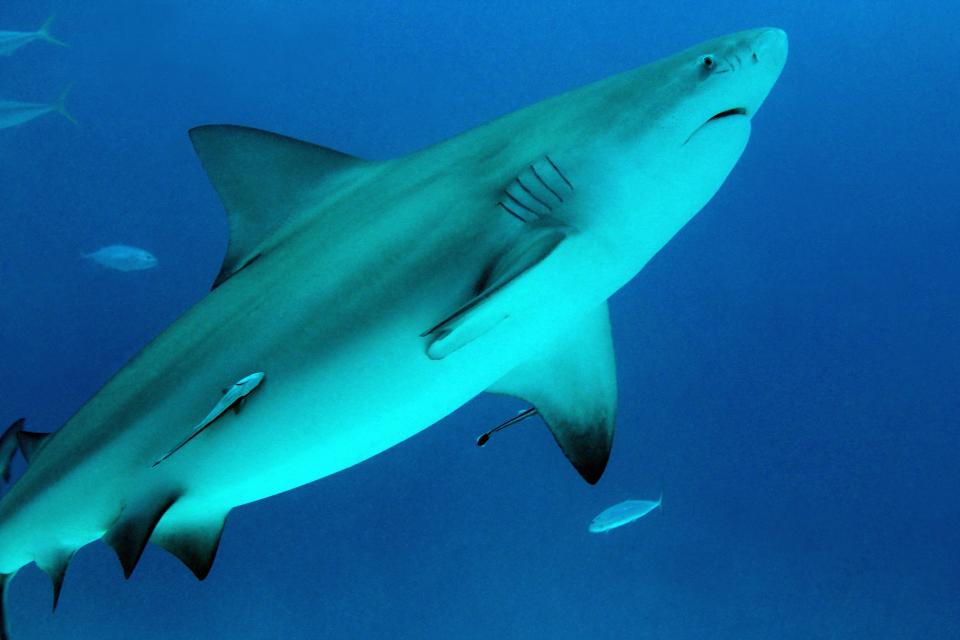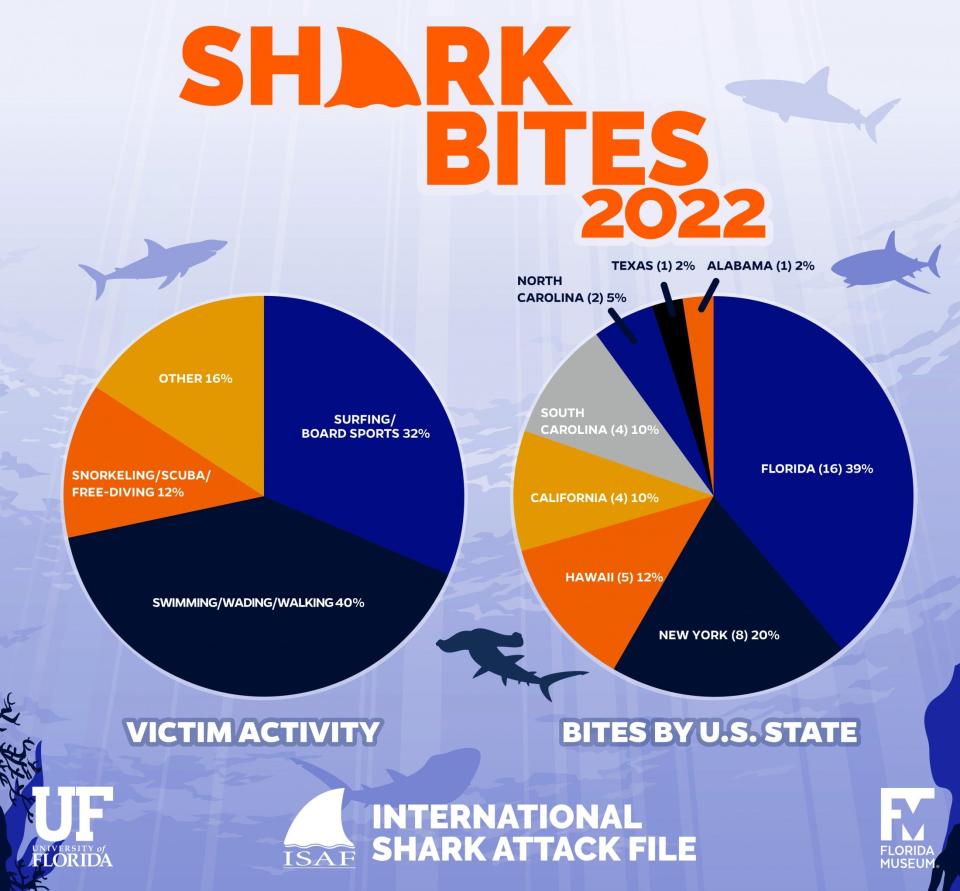UF's International Shark Attack File: Unprovoked bites down in 2022
The number of unprovoked shark attacks worldwide decreased last year, tying with 2020 for the fewest number of reported incidents in the last 10 years.
According to the University of Florida’s International Shark Attack File, there were a total of 57 unprovoked bites in 2022, most of which occurred in the United States and Australia. Of these, five attacks were fatal, down from nine deaths in 2021, and 10 the year prior.
Since 2013, there has been an average of 74 unprovoked bites per year.
The one notable exception was in 2020, as COVID-19-related travel restrictions and beach closures likely resulted in fewer encounters between humans and sharks. The overall reduction in the number of bites last year may reflect the documented global decline of shark populations.
“Generally speaking, the number of sharks in the world’s oceans has decreased, which may have contributed to recent lulls,” said Gavin Naylor, director of the Florida Museum of Natural History’s Florida Program for Shark Research. “It’s likely that fatalities are down because some areas have recently implemented rigorous beach safety protocols, especially in Australia.”

Science:University of Florida study shows human pee could play key role in seagrass restoration
More:Animal rights group files complaint against UF research ending in dog deaths
The International Shark Attack File places a strong emphasis on unprovoked bites in its annual report and does not highlight attacks that may have been prompted by mitigating circumstances, such as fishing lines cast in the direct vicinity of the incident or the presence of chum in the water. There were 32 additional bites in 2022 that fit the ISAF’s criteria for having been intentionally or unintentionally provoked.
“Unprovoked bites give us significantly more insight into the biology and behavior of sharks,” Naylor said. “Changing the environment such that sharks are drawn to the area in search of their natural food source might prompt them to bite humans when they otherwise wouldn’t.”
As in previous years, the U.S. had the highest number of bites, and Florida again had more reported bites than anywhere else on Earth. None of Florida’s 16 unprovoked bites were fatal, but two — likely from bull sharks — required medical treatment resulting in amputations. A woman snorkeling in the Dry Tortugas early in the year was notably bitten by a lemon shark, which rarely attacks humans. T
he incident marked only the 11th known unprovoked attack from this species.
The U.S. had only a single unprovoked fatality, which occurred late in the year when a snorkeler went missing along Keawakapu Beach in Maui, Hawaii.

Australia had nine confirmed unprovoked bites, and single bites occurred in New Zealand, Thailand and Brazil. Two fatal attacks occurred on the same day in Egypt’s Red Sea, where shark encounters are considered rare. South Africa, which averages a few bites a year, had two unprovoked attacks in 2022, both of which were fatal and likely caused by white sharks.
The chances of being bitten by a shark remain incredibly low. According to the World Health Organization, drowning is the third leading cause of accidental death worldwide, and coastal features like rip tides and strong currents pose a greater risk to beachgoers than sharks.
The International Shark Attack File provides a curated list of recommendations for further reducing your risk of a shark bite, such as removing reflective jewelry before entering the water and avoiding areas where people are fishing. For more resources, including the full 2022 report, you can visit the International Shark Attack File’s website at floridamuseum.ufl.edu/shark-attacks/.
This article originally appeared on The Gainesville Sun: University of Florida International Shark Attack File bites down 2022

